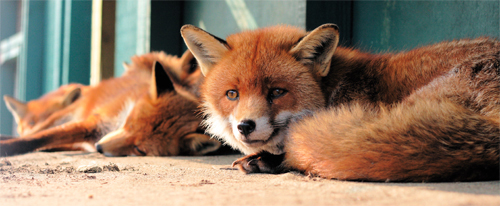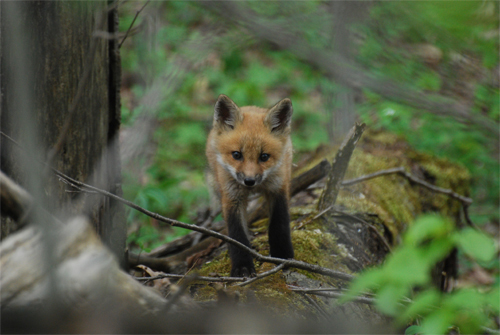Every spring there is considerable anguish expressed on various shooting websites about the legality of releasing captured (presumably urban) foxes into the wild. Internet sites are full of sightings of white vans unloading and releasing foxes, fox cubs and even foxes that appear to have undergone expensive surgery.
There appears to be a feeling that such release is illegal because foxes are on some sort of register of vermin, and that since it is illegal to release grey squirrels into the wild, the same must apply to foxes.
So what is the law?
The position with grey squirrels is clear. It is unlawful to release non-native species. Grey squirrels are listed in Schedule 9 of the Wildlife and Countryside Act 1981; their release is prohibited (Section 14 of the Act) without a licence. That is why you occasionally read about people being prosecuted for letting them go. Of course, you also read about people being prosecuted for killing them. In those cases, it is normally the method used and the attendant publicity that gets people into trouble – it must be done humanely, so no drowning or ineffective shooting with air rifles.
Foxes, of course, are native, so the frustrated free-range poultry farmer will find no help there. There is no register of vermin – vermin has never been legally defined, so again no help there. (Although there can be little doubt that foxes are vermin, since in the absence of a legal definition the court would be looking at the normal everyday meaning, which is: “Animals… troublesome or destructive to crops, game or domestic stock,” which hits the nail on the head as far as foxes are concerned.)
Some suggest that releasing foxes may be an offence under the Abandonment of Animals Act 1960, but that Act has been superseded by the Animal Welfare Act 2006. The Animal Welfare Act 2006 firstly defines what it means by ‘animal’ – for these purposes a vertebrate – and then defines a protected animal. An animal is a ‘protected animal’ if: (a) it is of a kind that is commonly domesticated in the British Islands, (b) it is under the control of humankind, whether on a permanent or temporary basis, or (c) it is not living in a wild state. So a trapped fox would be protected as it is under the temporary control of humankind.
Section 4 of the Act makes plain that a person commits an offence if: (a) an act of his, or a failure of his to act, causes an animal to suffer; (b) he knew, or ought reasonably to have known, that the act, or failure to act, would have that effect or be likely to do so; (c) the animal is a protected animal; and (d) the suffering is unnecessary.
So would releasing a trapped fox cause it unnecessary suffering? In 2009 Jane Kennedy, then the secretary of state for environment, food and rural affairs, was asked about the movement of foxes. She said: “From time-to-time Defra receives anecdotal reports of urban foxes being released into the countryside.
“The government does not condone the translocation of foxes from urban to rural areas. While it is not illegal under wildlife legislation to move foxes from one place to another as long as the provisions of the Animal Welfare Act 2006 are complied with, there are welfare concerns with releasing foxes into areas unfamiliar to them and the potential to spread disease.
“Under section 9 of the Animal Welfare Act 2006 it is an offence for a person to fail to provide for the welfare needs of an animal under his or her control. This includes failing to take reasonable steps to ensure that an animal has the ability to fend for itself in the wild on release.
“If it were found that an animal had suffered unnecessarily after release, it could also be an offence of causing unnecessary suffering under section 4 of the Animal Welfare Act 2006.”
Many people think that catching foxes and releasing them is in itself inhumane, particularly when an urban fox is taken out to the countryside. They are likely to have less fear of humans, and may prefer the rustle of a burger wrapper to the squeak of a rabbit. They won’t be lamp-shy and generally don’t have the skills to survive and compete with their rural cousins. If that is so then they may have suffered unnecessarily and an offence may have been committed.
It might be difficult, however, to prove that a fox suffered unnecessarily after release. You might have to record its movement and its hunting prowess on video. And in any case it is difficult to see in the current economic climate that the police would be willing to put a great deal of time and resources into such an exercise. Which would tend to indicate that the task would fall to the RSPCA. After all, they have been known to spend vast sums of money prosecuting people suspected of hunting.
The difficulty with that is that the RSPCA has a policy of releasing foxes back into the wild themselves. There has never been a prosecution arising out of the catching or treating and subsequent release of foxes. I don’t expect there to be one any time soon. I don’t expect an end to the anecdotes about urban foxes being dumped anytime soon, either.
Peter Glenser









Comments are closed